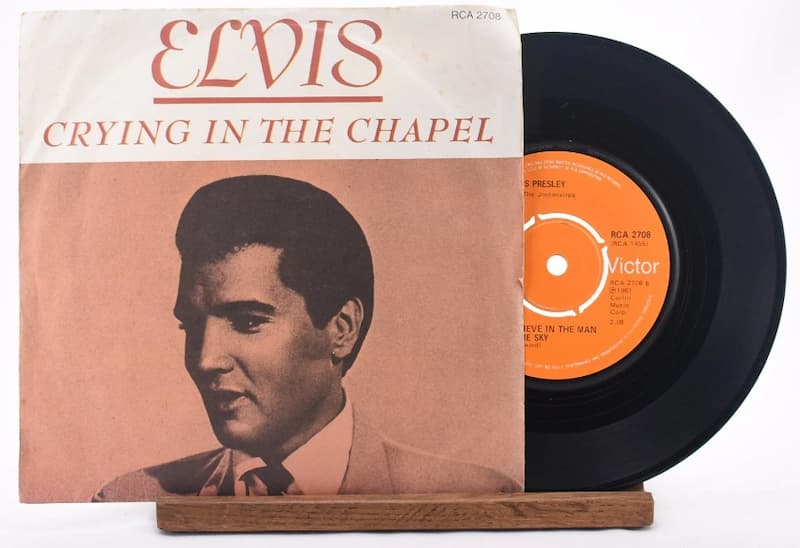Introduction

Tears of Joy: The Gospel Roots of Elvis Presley’s “Crying in the Chapel”
Elvis Presley’s “Crying in the Chapel” isn’t just a classic rock ballad; it’s a song that bridges the gap between gospel and mainstream music. Released in 1965, the song became a surprise hit for Presley, showcasing his powerful vocals and his deep connection to gospel music, a genre that heavily influenced him throughout his career.
The song’s origins lie not with Elvis himself, but with a relatively unknown gospel singer named Artie Glenn. In 1953, Glenn recorded “Crying in the Chapel,” a heartfelt ballad about finding solace and spiritual fulfillment in faith. The song reached number six on the Billboard gospel chart, but failed to achieve mainstream success.
Years later, Presley, known for his love of gospel music, expressed interest in recording “Crying in the Chapel.” Songwriters drastically reworked the lyrics, removing some of the overtly religious references while maintaining the core message of finding peace and contentment. Presley’s rendition transformed the song from a soulful gospel ballad to a more mainstream pop tune, featuring his signature soaring vocals and a touch of rock and roll swagger.
The new version of “Crying in the Chapel” resonated with audiences. Released in 1965, it became Elvis’ first million-seller since 1962 and his biggest chart success in over six years. The song showcased Presley’s versatility as a singer, his ability to seamlessly blend gospel influences with his rock and roll persona.
“Crying in the Chapel” also sparked a renewed interest in gospel music. Listeners who connected with Presley’s version sought out the original by Artie Glenn, introducing a wider audience to the genre’s rich tradition. The song became a bridge between the sacred and the secular, demonstrating the emotional power of gospel music.
The song’s legacy extends beyond its initial success. “Crying in the Chapel” has been covered by countless artists across genres, each adding their own interpretation to the timeless message of finding peace and hope. It continues to be featured in movies and television shows, a testament to its enduring appeal.
So, the next time you hear “Crying in the Chapel,” remember its surprising journey from a gospel ballad to a rock and roll anthem. It’s a song that transcends genre, a reminder of the power of music to connect us emotionally and spiritually, and a testament to Elvis Presley’s enduring influence on popular music.
Video
Views: 96